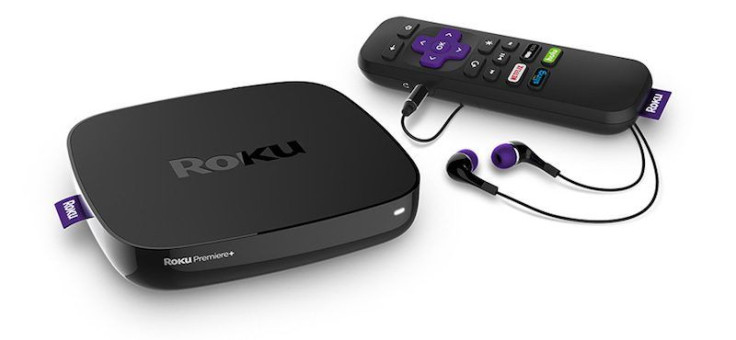Roku IPO: Streaming Service Sees High Stock Price In Market Debut

Roku has seen a strong performance in trading during its market debut Thursday. Launching at $14 per share, Roku stocks opened trading at $15.78 and by 1:30 p.m. ET, had reached around $22 a piece.
The company’s stock market debut comes on the heels of its initial public offering confirmation earlier this month. Roku raised $219 million during the process, which gave the company a sizable market capitalization of roughly $1.6 billion.
Historically, the company’s products and services have largely been a platform for streaming services and hardware. Its software is commonly built into smart TVs and hardware like the Roku Premiere and Streaming Stick can easily be connected to older TVs. Services like Netflix, Hulu and Amazon Prime Video also have Roku channels that can be added to Roku-powered devices.
However, Roku’s strategy behind its initial public offering has focused on ways to leverage growing viewer trends that favor streaming video. The company takes a cut of advertising revenue from apps on Roku devices and it’s become an increasingly important part of Roku’s financials. According to the company’s filing with the Securities and Exchanges Commission, advertising accounted for 67 percent of Roku’s non-hardware revenue for the first half of 2017. Roku has also seen increasing competition from companies like Apple, Google and Amazon, which all sell their own streaming TV devices.
At the moment, Roku still makes most of its money from selling streaming players, but with its emphasis on future advertising revenue, Roku has focused on growing its user base through programming — the company has more than 5,000 channels within the U.S. and 3,000 internationally — and hardware. Roku CEO Anthony Wood told CNBC the company increasingly sees itself as an “operating system for TV” and it would take advantage of advertising revenue migrating to streaming networks. But although the company has seen steady revenue performance over the past few years, it’s also still losing money overall — Roku posted a net loss of $24.2 million for the first half of 2017.
Roku is also the latest tech company to go public in what’s been a largely lackluster year for tech initial public offerings. High-profile companies like Snap Inc. and Blue Apron have struggled to meet lofty initial expectations from investors, though Spotify’s long-rumored initial public offering, which has been tied to potentially late 2017 or early 2018, could be a positive move for the market.
Gaming company Rovio, which is best known for the Angry Birds mobile franchise, has also made moves for its own public offering. The company’s shares were set at 11.50 euros ahead of its slated market debut Friday, giving it a value of around $1.06 billion, according to Reuters.
© Copyright IBTimes 2024. All rights reserved.











